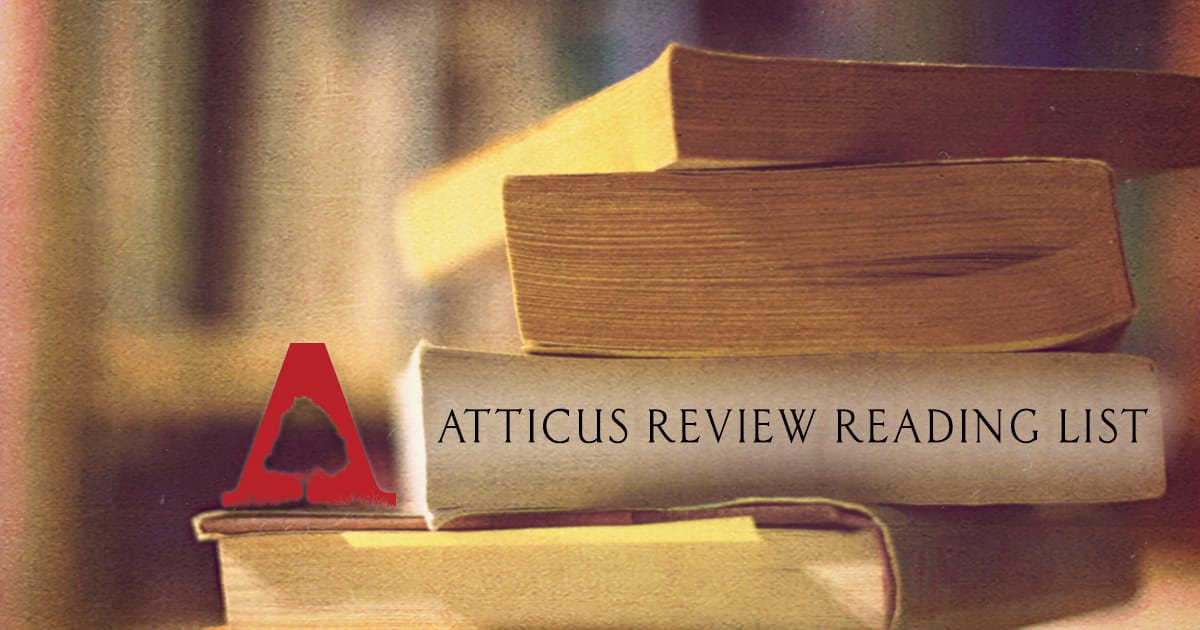- The Weekly Atticus
- Posts
- Creativity and Hope
Creativity and Hope
Creativity and Hope
Plus: Creative Nonfiction Deadline Extended

Creative Nonfiction Deadline Extended
We are EXTENDING our creative nonfiction submission period through the end of the month! That means you can partake in the time-honored tradition of spending Thanksgiving submitting essays while the turkey burns. Send us nonfiction, flash memoir, hybrid essays, dispatches, travelogues, braided essays, artifacts, and everything else!
Creativity, Hope, and Moral Clarity
This week, I had the privilege of attending a Zoom launch for Kristine Langley Mahler's newest book A Calendar is a Snakeskin. Of course, there was a tarot reading, and while I've lost the exact wording from the exact card, one thing that stuck out to me was the role of creativity in fraught, difficult, and even painful times.We are a literary journal named after a character, Atticus Finch, who, for many, embodies moral clarity, and for many others represents the limits of moral clarity. Literature can be thorny, in good ways and in bad. I don't know how well Finch holds up to the standard readers see him representing, nor how well we, as a literary journal, live up to that standard. What I do know is that I've also been reading and rereading Noor Hindi's poem "Fuck Your Lecture on Craft, My People Are Dying." I think about the lines "I want to be like those poets who care about the moon./Palestinians don’t see the moon from jail cells and prisons."I've been teaching my students about creative thinking from an evolutionary perspective. It has deep roots, and is deeply connected to the very distinction between our species and our most recent ancestors. At a neurological level, creativity is a result of connections. Creative thinking arises when we confront a problem by connecting it to many, many, many different memories, and desires, and experiences, and pain, and joy, and tropes. I want to sell creativity to my students as a God-given right that nothing can take away, as the thing that helped us create vaccines and end Apartheid in South Africa. I might also be trying to sell it back to myself, now that I am once again revising my novel and confronting problems in the plot with the sum total of my thirty-one years' combined memory and the all the books I've read, which, to be honest, is not that many in the scheme of things.But sometimes craft just gets in the way. I admire writers and editors who signed an open letter with the organization Writers Against the War on Gaza, modeled on a similar organization founded in 1965, American Writers Against the Vietnam War. I admire the Jewish writers who signed an open letter with n+1 critiquing the conflation of Zionism with Judaism, and anti-Zionism with antisemitism, including writers like Vivian Gornick and Josh Gondelman. I admire Guernica for devoting their recent newsletters to Palestinian authors they have published in the past. I am disappointed by the revelation that the Poetry Foundation decided to pull a review of Sam Sax's new collection Pig because the review discusses anti-Zionism.Will creativity help in the moment? In any moment? I don't know. I don't have much insight to offer, which is why I look to other writers right now. This is why, in part, the Poetry Foundation's decision was so disappointing, because it diminished the scope of available voices we can read and learn from. My own creative thinking fails me, so I look to people who are smarter and more experienced and better-read than I am, among them Israeli Holocaust historian Raz Segal, in studying and condemning what Segal refers to in Jewish Currents as a "textbook case of genocide" against Gazans.Literature is thorny for a reason. A month ago, we celebrated banned books week. If there's a lesson there, it's that the more voices we have access to, the more connections we can make. Sometimes this is a matter of mere liberty, but other times, it can be a matter of collective survival.In the meantime, I hope you keep writing. The world needs it.Peace,Keene ShortEditor-in-ChiefAtticus Review
THIS WEEK AT ATTICUS

NEW FROM THE ATTIC
Stephany Wilkes interviews Kandi Maxwell, Author of SNOW AFTER FIRE
"As humans, we connect to place —the geography, the environment. To lose those attachments is to lose pieces of oneself."

ISSUE FIVE SPOTLIGHT
MISS TAYLOR'S PHOTOS OF PORTUGALby Angela Chaidez Vincent
SUPPORT ATTICUS!

We are able to bring you content such as this through the generous support of writers and readers like yourself. Please consider becoming a regular
today. All subscription levels include free submissions.

Our Reading List is updated each week. Go check it out!Are you a contributor to Atticus Review who'd like your book featured in the reading list? Send us an email at [email protected].
**For photo credits, follow links to stories.**